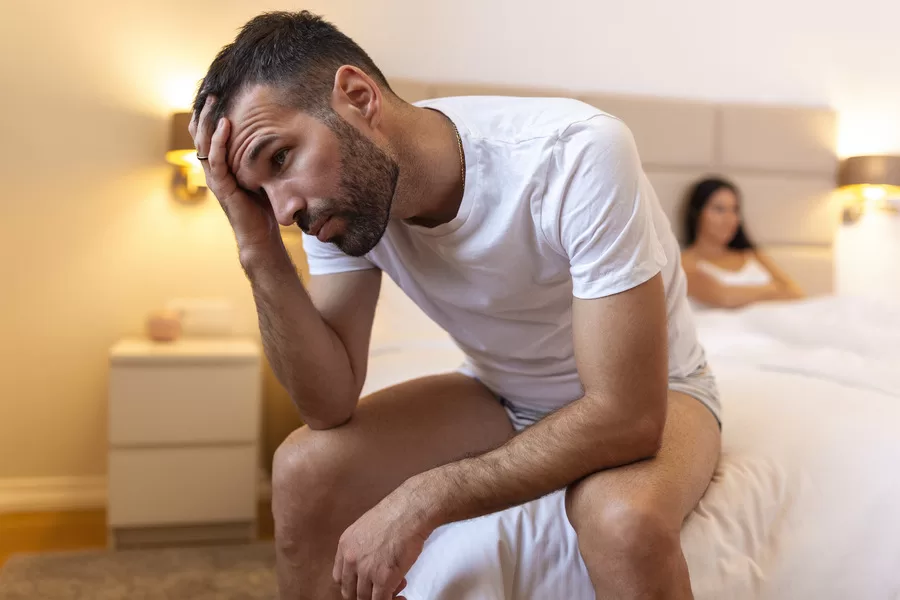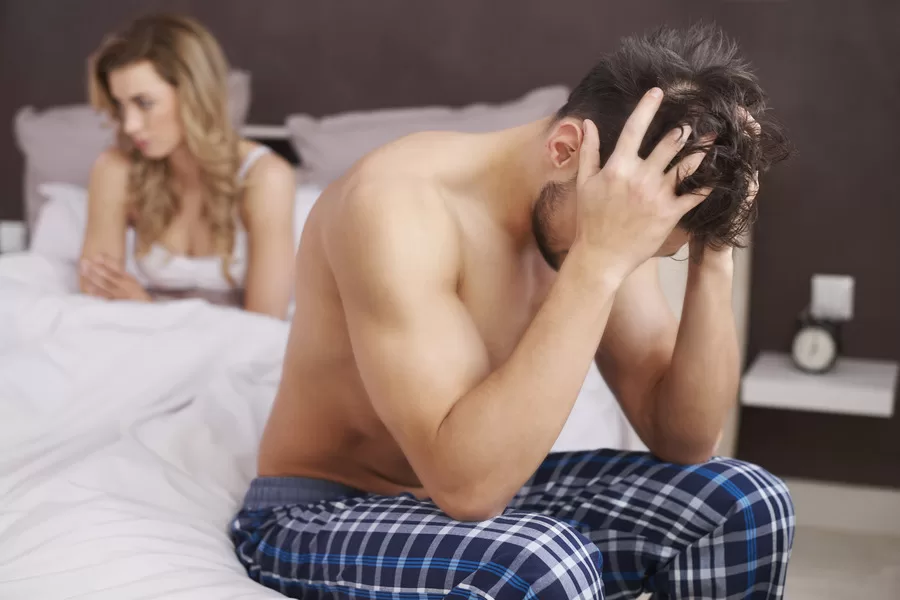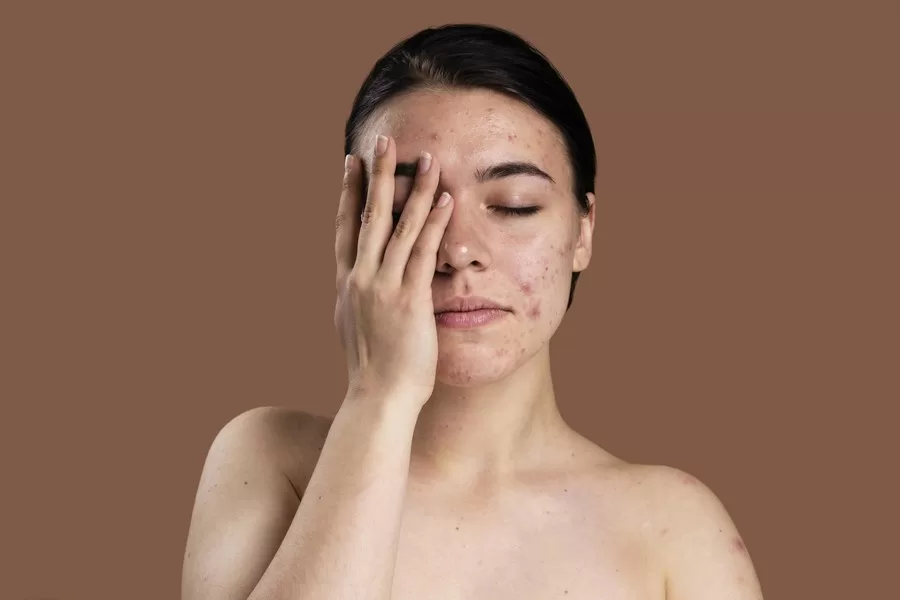
Did you know that estrogen is produced and is a vital hormone not only for women, but also for men? What will happen if its level is below normal, what are the consequences and how to properly maintain its balance?
Understanding Estrogen’s Role in Men’s Health
What Does Estrogen Do in Men?
- Bone Strength: Just like the steel beams in a building, estrogen helps keep bones strong and sturdy. Without enough of it, men could end up with weak bones that are prone to breaking.
- Brain Matters: Estrogen helps in the smooth running of the brain’s operations. It ensures the smooth functioning of the mechanisms of mood, emotions and memory. Low levels might leave a man feeling moodier or more forgetful.
- Heart Health: It helps arteries stay flexible and can keep cholesterol in check, which means a healthier, happier heart.
- Keeping Fit: Estrogen helps decide where fat sits on a man’s body and plays a part in muscle health too. Too little, and men might notice more belly fat or less muscle.
- Joint Joy: Estrogen helps keep joints and muscles happy and well-lubricated.
- Sexual Health: Beyond just fueling desire, estrogen is important for sperm health too. It is a key player in reproduction, ensuring that everything works as it should.
The Balance Act of Estrogen
Too little or too much can lead to various health issues. Men with low estrogen might see more fat around the middle, feel tired, or have trouble with their bones. Those with too much might find themselves dealing with unusual breast growth or problems in the love department.
It’s all about balance. Eating right, staying active, and keeping stress in check can help keep estrogen levels where they should be. Avoiding substances that mimic estrogen (like certain plastics and chemicals) is also a smart move. Regular check-ups with the doctor can catch any hormone hijinks early, keeping men healthy and well.
Causes of Low Estrogen in Men
- Aging: As men get older, it’s like their body’s hormone factory starts to slow down. This means less testosterone is made, which also leads to less estrogen. It’s a natural part of getting older, just like getting those distinguished grey hairs or enjoying afternoon naps more.
- Hypogonadism: This is a condition where the body’s not making enough testosterone. It can be because the testicles aren’t doing their job right or the brain’s not sending the correct signals. With less testosterone, there’s less to convert into estrogen, leading to lower levels of this important hormone.
- Obesity: Carrying extra weight, especially around the belly, can throw your hormones off balance. It’s like the body’s normal hormone production gets hijacked, leading to changes in how estrogen is made and processed. This can mean less estrogen overall, which isn’t good for overall health.
- Medications: Some medicines, especially those used to treat conditions like prostate cancer, can lower estrogen levels as a side effect. These medications are important for treating serious conditions, but they can lead to lower estrogen.
- Chronic Health Conditions: When the body is dealing with ongoing health issues, especially those affecting organs like the liver or thyroid, it can upset the whole hormone balance. These organs are important for controlling and making hormones, so when they’re not working right, it’s like the body’s hormone factory is out of whack, including the production of estrogen.
Low Estrogen Symptoms in Men
More Belly Fat
It might start to seem like fat loves your belly more than other parts. This isn’t just about eating a bit too much; it’s a common sign of low estrogen. The fat around your abdomen might increase, making those jeans a bit too tight. It’s your body’s way of telling you something’s up with your hormones.
Changes in the Bedroom
Low estrogen can cool things off in the love department. You might not feel as interested, or things might not work as well as they used to. It’s a touchy subject, but recognizing these changes is important. It’s all about keeping your relationships and personal life healthy and happy.
Emotional Ups and Downs
If you’re feeling more moody or down than usual, it could be a sign of low estrogen. Recognizing these mood swings and feelings of depression is key to seeking help and getting back to your usual self.
Feeling Tired or Can’t Sleep
Constantly feeling tired or struggling to sleep can wear anyone down. Low estrogen might be the culprit, making you feel like you’re always running on low battery or tossing and turning at night. It’s like your body isn’t getting the rest or recharge it needs.
Weaker Bones
Estrogen helps keep your bones tough and sturdy. With low levels, bones might become more fragile, a condition known as osteoporosis.
Aches and Stiffness
If your joints and muscles are starting to feel more achy or stiff, it could be due to low estrogen. These aches can be a sign to check in with your health and hormone levels.
If you’re noticing any of these changes, it might be time to talk to a healthcare provider. They can help figure out what’s going on and guide you to feeling better. Remember, knowing and acting on these signs can lead to a healthier, more vibrant life!
Handling Low Estrogen in Men
- Boosting Testosterone: Sometimes, giving testosterone a little nudge helps increase estrogen too. That’s because your body naturally changes some testosterone into estrogen. It’s like adding more ingredients to the pot to make sure you end up with enough food at the end. This can be done with treatments that your doctor will guide you on.
- Using Medicines Wisely: Certain medicines can help balance your hormones. They work by targeting the parts of your body that make hormones. But remember they need to be adjusted carefully and correctly, usually by a doctor.
- Living Healthier: Good habits go a long way. Eating better, staying active, and keeping a healthy weight are like regular tune-ups for your body. They keep everything running smoothly, including your hormones. Simple daily changes can make a big impact over time.
- Fixing Other Health Problems: Sometimes, other health issues can throw off your hormones. It could be something with your stomach, liver, or anywhere else. Getting these problems sorted out can sometimes help get your hormone levels, including estrogen, back on track.
If you’re worried about low estrogen, the best thing to do is chat with a doctor. They can help figure out what’s happening and the best way to tackle it. Just like learning anything new, the first step is asking for help when you need it. Take care of yourself, and remember, understanding and acting on health issues is a great way to keep feeling your best!
Naturally Maintain Hormone Balance
Fresh veggies, fruits, nuts, seeds, and whole grains are all good. They give your body the nutrients it needs to work well. Try to include foods that are known to support hormone health, but remember, the best diet is a varied one with all sorts of foods.
Move your body every day. Exercise helps your whole body, including your hormones. You don’t need to do anything too hard or for too long. Walking, swimming, or gentle stretching can all do the trick. Find an activity you like so you can stick with it.
Keep stress low. When you’re stressed, it can mess with your hormones. Try simple things to relax like deep breathing, going for a walk, or enjoying a hobby. Even a few minutes of calm each day can make a big difference.
Drink plenty of water. Staying hydrated helps every part of your body, including hormone production. Try to cut back on drinks like alcohol and caffeine, as they can upset your hormone balance if you have too much.
If you’re considering herbs or supplements, it’s important to be careful. Some might help with hormones, but you should always talk to a healthcare provider before you start anything new. They can help you figure out what’s safe and what might help.
Get regular check-ups with your doctor. They can help keep an eye on your hormone levels and overall health. If you’re worried about your estrogen or anything else, they can offer advice and help.
Keeping your estrogen balanced is about taking care of yourself every day. Eating well, staying active, managing stress, and being careful about what you put in and on your body all play a part. Small, regular habits can make a big difference to your overall health.
Balancing Estrogen with Exercise
Going for a daily walk or having a light jog can be really beneficial. These activities get your heart rate up and help maintain a healthy weight, both of which are important for hormonal balance. It’s about moving your body in a way that feels good and keeps you active.
Adding some strength training to your routine can also help. You don’t need to lift heavy weights; simple exercises with small weights or resistance bands are a great start. Building muscle helps your body stay strong and can support better hormone levels.
Yoga is great not just for your body but also for your mind. It helps reduce stress, which is important because too much stress can disrupt your hormones. Plus, the stretching and strengthening in yoga are good for your overall health.
If you love music, then dancing might be the perfect exercise for you. It’s a fun way to get moving and improve your mood. Like other forms of exercise, it helps with your weight and heart health, which are important for hormone balance.
Remember, it’s important not to overdo it. Too much exercise or very intense exercise without proper rest can actually throw off your hormonal balance. It’s all about moderation and listening to your body. Regular, moderate exercise is the key to keeping your body and your hormones happy.
It’s also important to enjoy what you’re doing. Exercise shouldn’t be a chore. Whether it’s a sport, a fitness class, or just a daily walk, find something that you look forward to doing. When you enjoy your exercise, you’re more likely to keep at it and reap the benefits.
Conclusion
Estrogen is critical for overall function, bone density, brain function, heart elasticity and fat distribution, as well as ensuring muscle and joint flexibility and a smooth personal life. Low estrogen levels can send the body into a state of increased belly fat, emotional rollercoasters, restless nights, brittle bones, and weak muscles. This is a signal that it’s time to recommit to health and wellness.
Lifestyle is your tool in adjusting hormonal balance. Eating a varied diet, regular physical activity that makes your heart sing, stress-reducing exercises that soothe your soul, and staying well hydrated are all part of maintaining estrogen balance.
Regular health checkups can help identify any hormonal imbalances early and get you back on track.
Be a steward of your environment by minimizing your exposure to known endocrine disruptors found in some plastics, chemicals and pesticides. Whenever possible, choose natural and organic foods, setting the stage for a healthier, hormone-friendly lifestyle.
FAQs
Bone density, sound mind, fat distribution, ensures flexibility of muscles and joints, and is also a sporsor of a stormy night.
Certainly! For example, exercise, proper nutrition and less stress. This will help keep your estrogen in balance.
You could have excess belly fat, emotional swings, brittle bones, sleepless nights and stiff muscles







